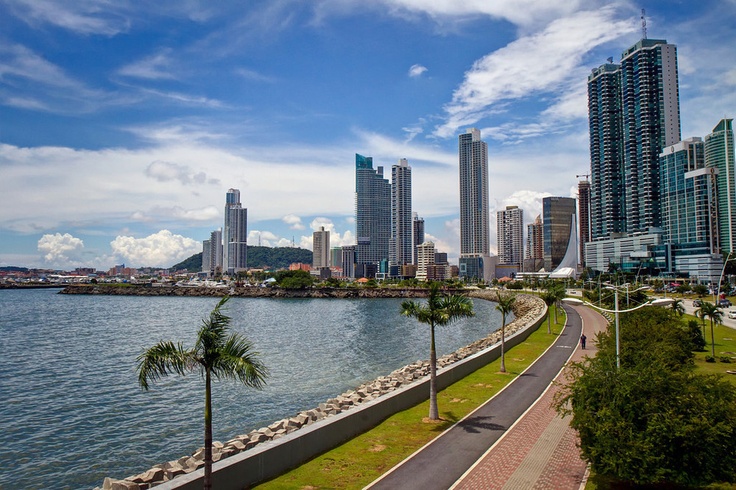About Panama
Inside the Republic of Panama
Panama. Facing the world, a mediator country, capable of playing a balancing role in international relations and capably representing the region and continent.
The Panama economy is based primarily on private enterprises and depends heavily on the services sector, closely geared to international trade and external factors.
Today, more than ever, Panama provides a considerable number of services to the world financial community, positioning the country as a financial center.
Panama enjoys an enviable geographic position, strategically situated at the crossroads of North and South America. Its central location also places it at nearly equal distances from Europe, Asia, and Africa on a hemispherical scale. This advantageous position offers direct air connections to over 85 cities in 37 different countries. Furthermore, Panama City’s Tocumen Airport serves as a global hub, receiving numerous one-stop flights from key cities worldwide every day.
Known as the “Bridge of the Americas” or “Crossroads of the World,” Panama has become a prime location for economic migration between the two continents and the two oceans. Our country has several other interesting attributes that make it an attractive hub for the worldwide business community.
Panama highlights
Advantages of Panama.
Other factors have also played a part in this service-oriented economy, the absence of currency restrictions, free circulation of the US dollar as legal currency, free international movement of capital, convenient taxation law focused on bringing in foreign investment and capital, and the lack of a central bank in charge of currency insurance.
Despite this unique monetary system, foreign investors in Panama enjoy the convenience of using a variety of currencies for business; this is mainly due to the international use of the canal and financial sectors and a rapidly expanding tourism industry.
Long banking center experience.
The Panama Banking superintendence supervises the banking activities closely to maintain a highly rated, reputable financial center.
More than 30 countries have been represented with commercial banks in Panama due to the 1970 banking law guaranteeing free movement of funds and lower taxes.
More than 6,000 Panamanian are employed by the banks, with multiple foreign banks operating in Panama. Of all the banks officially registered, approximately 70% provide full domestic and foreign services, about 30% are licensed strictly to conduct international operations or are representative offices.
It is essential to point out that offshore banking operations are exempt from Panamanian income tax. In a world moving toward greater globalization, Panama’s flexibility in dealing and experiencing a multitude of financial factors, including banking, low costs, and trade, establish it as a prime location in which to conduct local as well as global businesses..
Panama attractive taxation law.
Historically, one of the major factors responsible for the thousands of holding companies’ operations established in Panama by the international financial community has been relative tax freedom. Panama does not assess any income tax on income produced from sources outside the country, including the proceeds of sales made outside of Panama. This territorial method of taxation is only one of the many advantages of incorporation in Panama.
Political and economic stability.
The economy of Panama has remained stronger in the last decade, and inflation is one of the lowest in all of Latin America.
Tourism earnings have also been increasing. The government has outlined a robust development plan to attract foreign investors in tourism to improve resort facilities and infrastructure on the Atlantic and Pacific coasts.
Total annual trade passing through the Colon Free Zone exceeds 10.2 billion. The Colon Free Zone accounts for 5% of the gross domestic product, while Panama Canal traffic represents 10% GDP.
Investment factors.
Moreover, the development of institutions and instruments to regulate business activities in Panama has been consistent with its trade and service-oriented economy, which is closely connected to the international market and geared to using Panama’s geographic position.
There are very few limitations on foreign investments as well, especially for international business operations based in Panama. The government has developed the necessary institutional and infrastructure facilities, efficient public administrative machinery, favorable and flexible policy guidelines, and attractive fiscal and non-fiscal incentives to attract foreign investment into Panama.
Historically, the policies of the Panamanian government toward foreign investment have been so open that there has never been any need for a formal statement of policy on this subject. Legislation hardly establishes any differences in treatment between nationals and foreigners. Similarly, all foreign investors, regardless of their country origin, are treated equally.
Type of business entities.
In addition to the corporations (IBC), Panama has several types of modern business structures. A Panamanian entity that has captured the attention of many investors is the Panama Private Interest Foundation, which is very similar to the Liechtenstein establishment; however, it can be formed with substantially less cost in our country. Panama enacted in 1995 a law to govern the establishment of this entity, and it presents a serious alternative to standard offshore trust corporations.
Panama Private Interest Foundations represent a practical legal tool helpful for prudent family estate planning or asset protection and privacy.
Contact
Get in touch with us!
OUR OFFICE
Advanced Tower, 1st Floor
Panama City, Panama
CONTACT US
+507 264.5570 | 264.5931
info@matapitti.com
LinkedIn

